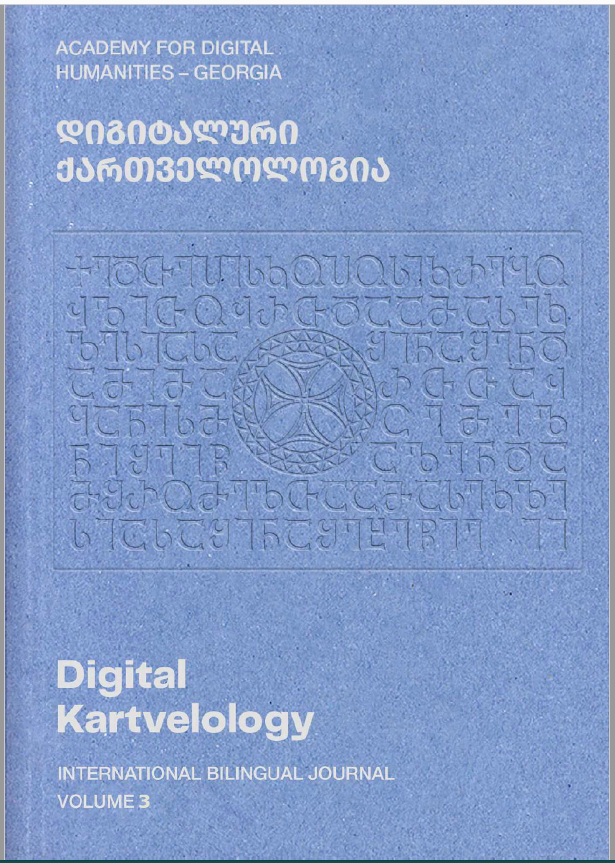ეკვივალენტობის კვლევისათვის მრავალენოვან პარალელურ კორპუსებში
Main Article Content
ანოტაცია
Shota Rustaveli’s epic “The Knight in the Panther’s Skin” is an exceptional monument of aphoristic style. The complexity of Shota Rustaveli’s worldview, which is mirrored in his epic, is a result of the mixing of mediaeval and Renaissance thinking. It combines Christian (and, in general, religious) thoughts with antique philosophy (Plato, Dionysus the Areopagite, Aristotle) and mythical and transcendental visions with analytical thinking. Rustaveli’s worldview, as well as several religious-philosophical doctrines – Christianity, Areopagitica, Neoplatonism, and Aristotelianism – are all reflected in the aphorisms used in the epic, which plays a special role not only in the cultural memory of the Georgians but also in the history of world literature. The epic has been translated into 58 languages and is included in the registry of the world cultural heritage of UNESCO. The variety of languages into which the epic has been translated provides a unique opportunity for the creation of the multilingual parallel corpus ‘Rustaveli goes digital’, which is an outstanding resource for translation studies to examine the quality of translations, analyse translation methods, pinpoint translators’ strategies, and contrast them. But how can we judge the quality of translations, especially in the case of aphorisms? Determining the degree of equivalence between the source and target texts is not sufficient for a qualitative evaluation of the translations of the epic; e.g., the translation quality of the aphoristic style in the translations is one of the challenges that we believe needs to be addressed. In the present paper, we discuss our research model on how to evaluate the translation quality of aphorisms.




